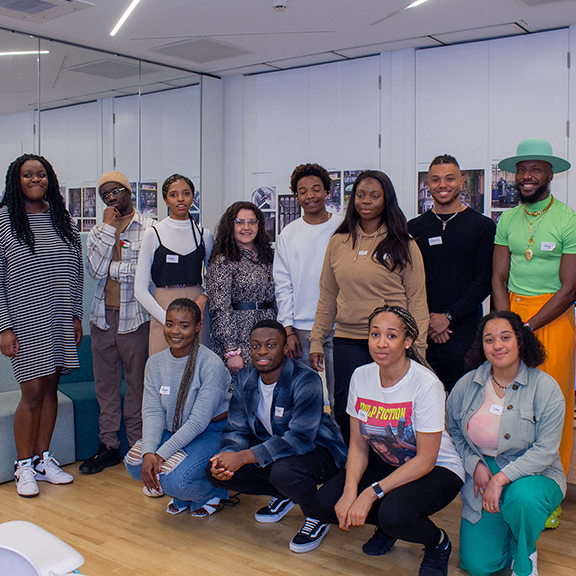
The Diana Award – #YoungAndBlack Changemakers
Insights from an commissioned evaluation of The Diana Award’s Anti-Racist and Anti-Sexual Bullying Programmes

#YoungAndBlack Changemakers enabled young people with Black and Black mixed-race heritage to channel their lived experiences into tackling racial injustices in mental health services in the UK. The funding from Spirit of 2012 supported The Diana Award to build on the legacy of the programme, where they were able to develop and deliver Anti-Racist Bullying Training to secondary schools. More information on the webinars that were run can be found on The Diana Award’s website.
Centre for Mental Health was commissioned by The Diana Award to conduct an independent evaluation of the Anti-Racist and Anti-Sexual Bullying Programmes. They used questionnaires, interviews and focus groups to evaluate the impact on the Ambassadors, staff members, and wider school community.
Following the training sessions, students and educators were provided with 12 months of support to develop campaigns. 1,580 primary school Ambassadors and 1,050 secondary school Ambassadors participated in the Anti-Racist Bullying Programme across 2022-23. The findings show that these sessions enhanced the primary school Ambassadors’ ability to support others and report racist bullying behaviours at their schools, though they also suggest that the training was not effective at strengthening the primary school Ambassador’s ability to support themselves. However, responses from the secondary school Ambassadors show that they were able to develop their support skills through the training. Both primary and secondary school Ambassadors shared that the training programme had enhanced their ability to support themselves and others, in strengthening their communication and active listening skills.
As a result of what was learned from the feedback, recommendations have been made to support the development of the Anti-Racist and Anti-Sexual Bullying Programmes, such as increasing in-person sessions and ensuring these are accessible, making the training more interactive, and conducting further research to learn how to best support secondary-aged Anti-Bullying Ambassadors to be active upstanders and to increase their self-confidence and influence.

Outcomes and learnings
- 100% of staff members said that they would recommend the training to other schools, with 92% of Ambassadors rating the programmes as ‘enjoyable’, and a further 91% agreed that it is important for young people to complete the training at least once.
- 100% of staff members and 92% of Ambassadors rated the resources and overall delivery of the training session as either ’excellent’ or ‘good’.
- Planning and delivering anti-bullying campaigns can help young people to build various skillsets (e.g. public speaking and presentation) and develop their self-confidence.
- One staff member shared that young people often misinterpret sexual bullying behaviours, like handholding, as friendly behaviour, which highlights the importance of educating children about consent and boundaries from a young age.
- Secondary-aged Ambassadors felt that their influence on their peers is often short-lived. Further research is required to understand the unique barriers that secondary-aged students face in tackling bullying behaviours.
- Many untrained students stressed the importance of having Anti-Bullying Ambassadors as a source of support as they often find it easier to open up to similar-aged peers, which can encourage them to report bullying incidents more frequently.
- In larger, secondary schools, more Ambassadors are required to increase access to their support and maximise their influence within the school community.
